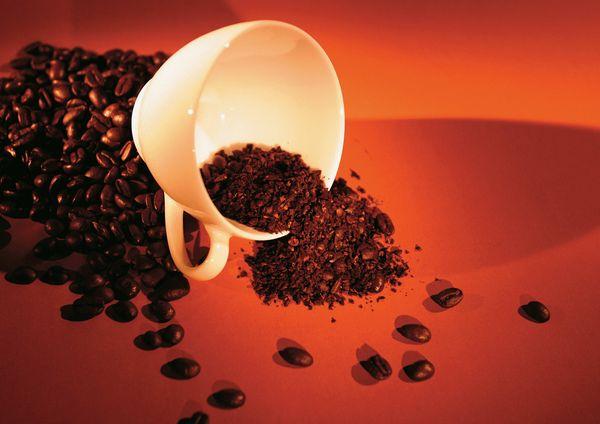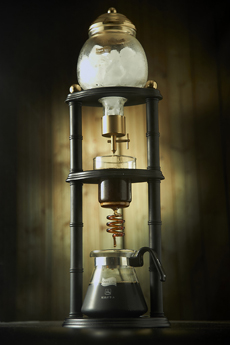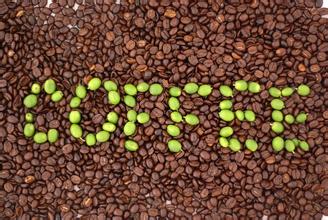Yunnan Pu'er Coffee what is the relationship between Yunnan Pu'er Coffee cultivation and roasting Coffee and Climate
Yunnan Pu'er coffee
[output] compared with the popularity of Pu'er tea, the fame of Pu'er coffee is not commensurate with the output. Yunnan's coffee output accounts for the country's total.
The output is 98.8%; the output of Pu'er coffee accounts for 57.8% of Yunnan's total output; and the price of a cup of Starbucks coffee is equivalent to 25 cups of AA.
Yunnan coffee beans.
[planting] in 2011, planting one mu of coffee trees in Pu'er can earn 4000-8000 yuan.
[export] Pu'er plays a primary role, and most of the coffee produced is supplied to multinational corporations in the form of raw materials. In 2011, Yunnan produced.
70% of coffee beans are carved up by coffee giants such as Starbucks, Nestl é, Maxwell and other coffee giants. Coffee exported from Pu'er accounts for the total export of Yunnan Province.
77.8% of the quantity.
[roasting] Yunnan has the largest coffee processing production line in China, with annual roasted coffee beans reaching 3000 tons of Starbucks in Yunnan.
According to the capital baking company, the value of coffee beans can appreciate 10 times after deep processing.
[retail] Nestle buys 12% of the world's annual coffee output every year, of which the proportion of purchases in Yunnan is increasing year by year
Nestl é buys so much that it can already determine the price trend of coffee to some extent.
Some people calculate that on average, nearly 3200 cups of Nestle coffee are drunk every second in the world.
[culture and education] Coffee base is a tourist resort farm with a nature of sightseeing.
Professional and technical training; enthusiast training

[analysis]
Advantages: the best coffee in the world is related to the Tropic of Cancer. Pu'er is located in Colombia, a world-famous coffee grower.
At the same latitude. Because of its large temperature difference between day and night and abundant rainfall, Pu'er belongs to the middle altitude area, so it is the most valuable commercial variety of coffee.
The golden belt of Arabica beans.
Opportunity: global coffee exporters produced 132.404 million bags (60 kg each) in 2011
The proportion of place of origin. 55% in the Americas, 17% in Asia and 11% in Africa. International coffee prices are expected to remain high in the next 10 years.
. In order to reduce their dependence on coffee growing bases in South America, coffee giants have adopted Pu'er as a new member of the coffee trading system.
base.
Threat: 80% of the coffee consumed in China is of low quality, and 80% of the raw materials consumed in the market come from Vietnam, which is of low quality. Low quality coffee
Coffee consumption suppresses coffee consumption
Weakness: in China, which is dominated by tea consumption, coffee farmers do not necessarily understand coffee, and the public do not have coffee consumption.
Habit of
The world consumes about 8 million tons of coffee a year, while China consumes less than 50, 000 tons.
Per capita coffee consumption in China: 3 to 4 cups per person per year.
Average consumption in coffee consuming countries: 30 to 50 cups per person per year.
The article comes from Baidu.
Important Notice :
前街咖啡 FrontStreet Coffee has moved to new addredd:
FrontStreet Coffee Address: 315,Donghua East Road,GuangZhou
Tel:020 38364473
- Prev

What is Fine Coffee selection Coffee quality Coffee beans Fine Coffee Criterion
Boutique Coffee beans Fine Coffee (specialty coffee) is also called specialty coffee selection coffee. It refers to coffee made from a small number of raw beans with excellent taste grown in an ideal geographical environment. Depending on the special soil and climatic conditions in which they grow, they have outstanding flavor. After strict selection and classification, this kind of coffee has a strong texture.
- Next

PT Gun ung, the largest coffee merchant in Sumatra, Indonesia
Mantenin is rich in Sumatra, Indonesia, where special geology and climate cultivate unique characteristics, with a very rich and mellow flavor, and with a more obvious bitter taste and carbon roast taste, bitter, sweet taste is especially good, unique charm. In 1995, UCC, the largest coffee company in Japan, joined PT Gun ung Lintong, the largest coffee manufacturer in Sumatra, Indonesia.
Related
- Detailed explanation of Jadeite planting Land in Panamanian Jadeite Manor introduction to the grading system of Jadeite competitive bidding, Red bid, Green bid and Rose Summer
- Story of Coffee planting in Brenka region of Costa Rica Stonehenge Manor anaerobic heavy honey treatment of flavor mouth
- What's on the barrel of Blue Mountain Coffee beans?
- Can American coffee also pull flowers? How to use hot American style to pull out a good-looking pattern?
- Can you make a cold extract with coffee beans? What is the right proportion for cold-extracted coffee formula?
- Indonesian PWN Gold Mandrine Coffee Origin Features Flavor How to Chong? Mandolin coffee is American.
- A brief introduction to the flavor characteristics of Brazilian yellow bourbon coffee beans
- What is the effect of different water quality on the flavor of cold-extracted coffee? What kind of water is best for brewing coffee?
- Why do you think of Rose Summer whenever you mention Panamanian coffee?
- Introduction to the characteristics of authentic blue mountain coffee bean producing areas? What is the CIB Coffee Authority in Jamaica?

